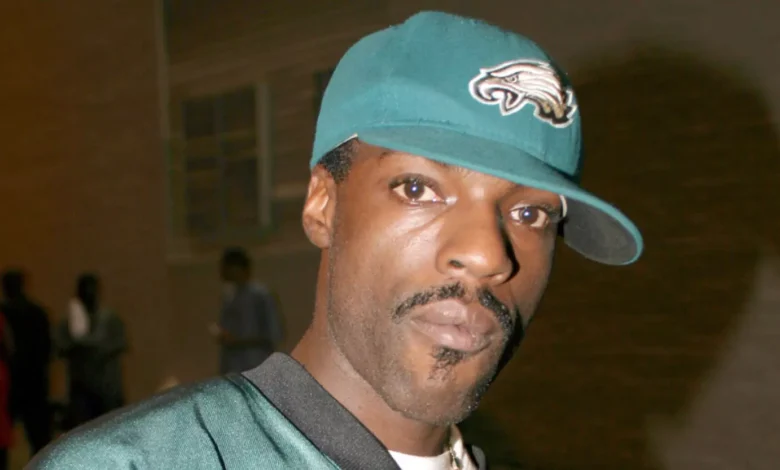The Rise, G Dep Fall, and Redemption of a Harlem Hip-Hop Story

Introduction: Who is G. Dep?
G Dep But his story isn’t just about beats and bars. It’s about internal battles, redemption, and an almost Shakespearean twist that turned a promising rap career into a cautionary tale. What makes G. Dep unique is not just his music but the path he chose to walk—a path that led him straight back to a crime he had long buried in his past.
Early Life in Harlem: A Rough Start
G Dep was raised in the rough streets of Harlem, where music and crime were often intertwined. His childhood wasn’t easy . Like many young Black men growing up in the inner city, he was surrounded by poverty, drugs, and violence. These harsh realities would later fuel his storytelling as an artist.
From a young age, Coleman showed an interest in music. Rapping became both an escape and a form of expression. He wasn’t just stringing rhymes together—he was painting vivid pictures of street life, internal conflict, and survival. By his teens, he had started making a name for himself in local rap battles, earning a rep for his clever wordplay and emotional depth.
But alongside his musical talent, G Dep struggled with drug addiction and legal trouble, laying the groundwork for the choices that would haunt him later.
Breaking into the Industry: The Bad Boy Era

G Dep’s big break came when he signed with Bad Boy Records in the late 1990s. At that time, Bad Boy was home to major names like The Notorious B.I.G., Mase, and Black Rob. The label was known for taking street rappers and turning them into superstars, blending street grit with commercial polish.
In 2001, G Dep released his debut album, “Child of the Ghetto.” While it didn’t become a massive commercial success, it was praised for its raw honesty and tight production. The standout single, “Special Delivery,” became a hit, especially after the remix featuring Ghostface Killah, Keith Murray, and Craig Mack. The beat, the hook, and G. Dep’s energy made it a club favorite and a street anthem.
Yet despite this success, Dep was never fully comfortable in the spotlight G Dep. The fame came with pressure, expectations, and temptations. His ongoing battle with substance abuse made it hard to stay consistent, and his relationship with the label reportedly became strained over time.
The Confession: A Twist No One Saw Coming
In a moment that shocked the hip-hop community and beyond, G. Dep walked into a Harlem police precinct in 2010 and confessed to a 17-year-old cold case murder. The crime had happened in 1993, when G. Dep was just 18 years old. He admitted to shooting a man during a robbery gone wrong and had lived with the guilt ever since.
This confession wasn’t prompted by DNA evidence or a police investigation—it was voluntary. Dep had recently become sober and claimed that he couldn’t live with the secret anymore. For him, telling the truth was part of a spiritual and emotional reckoning.
His confession led to his arrest and, eventually, a conviction. Despite there being no forensic evidence linking him to the crime, his own words were used against him. In 2012, he was sentenced to 15 years to life in prison.
It was a stunning moment. In a world where many celebrities run from accountability, G. Dep did the opposite. He handed over his freedom in search of peace.
Music After the Spotlight: Legacy and Impact
Although his time in the spotlight was brief, G. Dep left behind a body of work that still resonates with fans of early 2000s hip-hop. “Child of the Ghetto” remains a cult classic, especially for listeners who appreciate lyrical depth and real-life stories.
Tracks like “Everyday” and “When the Chips Are Down” are often revisited for their introspective tone and street-conscious themes. He was never just a party rapper—he was a street poet caught between two worlds.
Even from prison, G Dep’s music and story have inspired conversations about redemption, mental health, and personal responsibility in hip-hop. Artists and fans alike have debated whether his actions were heroic, foolish, or a bit of both.
Redemption Behind Bars: A New Chapter
While serving time, G Dep has tried to turn his incarceration into something meaningful. Reports suggest that he’s focused on self-improvement, helping others with addiction, and continuing his spiritual journey. In interviews, he has expressed no regret about confessing, insisting that it was the right thing to do.
For many, his story is a rare example of moral accountability in a genre that often glorifies street life without reckoning with its consequences. G. Dep’s decision to confess doesn’t erase the pain caused by the crime, but it opens a dialogue about guilt, healing, and the possibility of redemption.
There have also been occasional calls for clemency or reduced sentencing, with fans arguing that his voluntary confession should count for something. Whether or not that happens, his actions have already cemented his legacy as one of the most complex figures in hip-hop history.
Influence on Hip-Hop Culture: More Than Just Bars
G Dep’s impact isn’t measured in platinum plaques or chart-topping singles. Instead, it’s his authenticity, vulnerability, and moral courage that have made him a cult figure. He represents a side of hip-hop that doesn’t often get mainstream attention—the struggle between doing what’s right and what’s expected.
His life story has inspired documentaries, articles, and countless conversations online. Aspiring artists look to him as a reminder that hip-hop isn’t just about hype—it’s about truth. Even if that truth is uncomfortable.
In a time when many artists are overly curated and image-driven, G. Dep’s rawness stands out. His career might have been short-lived, but his story lives on.
Conclusion: G. Dep’s Unfinished Legacy
G Dep’s tale is one of the most compelling in modern hip-hop—filled with talent, turmoil, triumph, and tragedy. He rose from the streets of Harlem to the heights of Bad Boy Records, only to fall into addiction and ultimately turn himself in for a crime long buried.
But his story isn’t over. Whether or not he is released early, G. Dep has already rewritten the narrative. He showed that even in a world built on image and bravado, truth can still matter. He traded fame for freedom of conscience—and in doing so, he became a symbol of something bigger than hip-hop.
G Dep’s journey reminds us that redemption is never out of reach—and that sometimes, the most powerful bars aren’t on a record, but in the choices we make.



